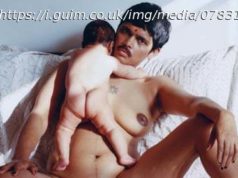A celebratory atmosphere recently overtook a local movieplex. Many people wore colorful African attire. There was even a line to take commemorative selfies in front of the “Black Panther” movie poster on the theater wall.
A celebratory atmosphere recently overtook a local movieplex. Many people wore colorful African attire. There was even a line to take commemorative selfies in front of the “Black Panther” movie poster on the theater wall.
Ticket sales are breaking records as black churches and community organizations have joined individuals in sold-out theaters. The movie brought in an estimated $192 million in its three-day debut in North America this weekend, the fifth-biggest opening of all time.
“Black Panther” is the latest movie featuring a superhero from the Marvel Comic Universe, but the first starring a black Marvel superhero. A marked departure from standard Hollywood fare, this is a movie that lifts up African – rather than European – standards of beauty by highlighting black actors with dark complexions and natural hair.
I’ll admit I was excited to see stars who look like me being treated as beautiful. But beyond the aesthetics of the film, “Black Panther” presents a vision of Africa that American film has never shown before. In “Black Panther,” an African nation, Wakanda, is untouched by colonization, slavery or economic exploitation. Audiences are invited to imagine how Africa’s two greatest gifts – her people and her natural resources – might have developed had Africa been left undisturbed and allowed to develop.
“Black Panther” is an example of “afrofuturism” – a genre that combines elements of science fiction, fantasy, African folklore, and Afrocentric thought – to ask questions about black people’s lives. As afrofuturistic science fiction often does, “Black Panther” imagines a world that does not exist in order to ask questions about how the world actually is.
“Black Panther” invites us to imagine how a son of an unsullied Africa might face the world. What gifts might Africa bring to the world if both its resources and its people had not first been stolen and then sold on the open market? It is this possibility – the sweet possibility of a truly independent Africa and truly autonomous Africans, both beautiful and strong – that has created such anticipation.
And the film delivers. Beautifully filmed, wonderfully acted, and crammed with the sort of action sequences viewers love, the film also invites the audience to think. The central confrontation is a battle between a son of Africa as it might have been and a son of America as it is. T’Challa (played by Chadwick Boseman) embodies all the strength, courage, and African potential the film invokes, while his African-American adversary, Killmonger (played by Michael B. Jordan), is his opposite. If T’Challa’s life was shaped by everything that is right in the Africa the film imagines, Killmonger’s life was distorted by racism, poverty, and everything that’s wrong in contemporary America.
T’Challa grew up in an imaginary African nation that was both wealthy and wise and where his blackness was celebrated. Killmonger, on the other hand, grew up in an America that was wealthy, but not very wise, where blackness is too rarely celebrated and too often exploited, oppressed, incarcerated or destroyed. More than a century ago, W. E. B. Du Bois famously asked of the black experience in America, “How does it feel to be a problem?” To be black in America, Du Bois argued, is to be treated as a problem.
The film plays with the name Black Panther, which is T’Challa’s secret identity in Africa, even as it invokes the Black Panther Party in the U. S. (An early scene takes place in Oakland, California, where the party originated.) Was Killmonger’s father a member of the Black Panthers? The movie only suggests this possibility. However, the distinction between T’Challa’s experience in a place where black panthers were venerated as spirit animals and Killmonger’s experience in a place where the Black Panthers were feared, killed and incarcerated is noteworthy.
In the film, Killmonger is an angry, killing machine. Might his life have been different if he had been valued as T’Challa was? It is this difference in the relative value of black life that the film invites us to consider. Do Black Lives Matter? Yes, but only in Wakanda.
Valerie C. Cooper is an Associate Professor of Black Church Studies at Duke Divinity School.






